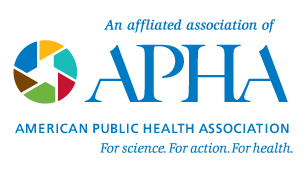|
Suicide & Self-Harm: Stopping the Pain
Graduate Eugene
66 E 6th Ave
Eugene, OR 97401
Wednesday, January 08, 2020, 8:00 AM - 5:00 PM PDT
Category: Oregon Public Health Events
Suicide & Self-Harm: Stopping the Pain is organized by PESI HealthCare and will be held on Jan 08, 2020 at Graduate Eugene, Eugene, Oregon, United States of America. This CME Conference has been approved for a maximum of 6.3 contact hours / 6.25 clock hours of continuing education instruction. REGISTER HERE!
Target Audience:
• Social Workers
• Psychologists
• Counselors
• Teachers
• School Administrators
• Marriage & Family Therapists
• Case Managers
• Addiction Counselors
• Therapists
• Nurses
• Other Mental Health Professionals
Course Description:
Using case studies taken from his 45-year career as a suicidologist and the DSM-5®’s expanded and comprehensive approach to suicide and self-mutilation – Jack Klott will bring to life the ideas, theories and concepts presented in this engaging one-of-a-kind workshop.
After examining the goals of suicide and the goals that the self-mutilator desires to achieve, you will delve into treatment strategies that will help guide your client to achieve those goals with other, less damaging strategies. You will learn which personality types are most vulnerable to acts of suicide and self-mutilation, as well as the essential link between these behaviors and addiction disorders. Most importantly, your attention will be focused on the treatment relationship and the key to hope for both the suicidal and the self-harm clients.
Objectives:
• Implement a risk assessment strategy that helps clinicians determine which clients present the highest risk for suicide and self-harm.
• Analyze the concept of suicide “contracts” and communicate their impacts on clients, clinicians, and clinical vigilance.
• Explain how intent differentiates self-mutilation from suicide attempts and accurately identify the one form of self-mutilation that is a warning sign for potential suicide completion.
• Implement techniques for effectively intervening in crisis situations and develop a strategy for determining when and how to hospitalize clients.
• Articulate the role of addictions in the suicidal and self-mutilating population and employ a multi-faceted therapeutic approach that ensures client safety and addresses treatment of the addiction.
• Determine the purpose behind self-injuring behavior and communicate how alternative coping strategies can be introduced in therapy to help clients manage triggering situations without self-harm.
|

 Prev Month
Prev Month View Month
View Month Search
Search Go to Month
Go to Month Next Month
Next Month Export Event
Export Event 